-
 bitcoin
bitcoin $99177.955738 USD
-7.32% -
 ethereum
ethereum $3187.183061 USD
-12.38% -
 tether
tether $0.999809 USD
0.00% -
 xrp
xrp $2.117933 USD
-9.42% -
 bnb
bnb $906.710033 USD
-9.17% -
 solana
solana $149.367737 USD
-10.74% -
 usd-coin
usd-coin $0.999816 USD
0.01% -
 tron
tron $0.281498 USD
-0.38% -
 dogecoin
dogecoin $0.156292 USD
-8.00% -
 cardano
cardano $0.500744 USD
-10.19% -
 hyperliquid
hyperliquid $38.087358 USD
-4.58% -
 chainlink
chainlink $14.097831 USD
-8.54% -
 bitcoin-cash
bitcoin-cash $463.329916 USD
-9.22% -
 ethena-usde
ethena-usde $0.999078 USD
-0.01% -
 unus-sed-leo
unus-sed-leo $9.475862 USD
-0.79%
Coinbase vs. Coinbase Wallet: A Full Security and Feature Comparison.
Coinbase is a custodial exchange for buying crypto easily, while Coinbase Wallet is a non-custodial app giving full control over private keys and access to Web3.
Nov 05, 2025 at 01:36 am
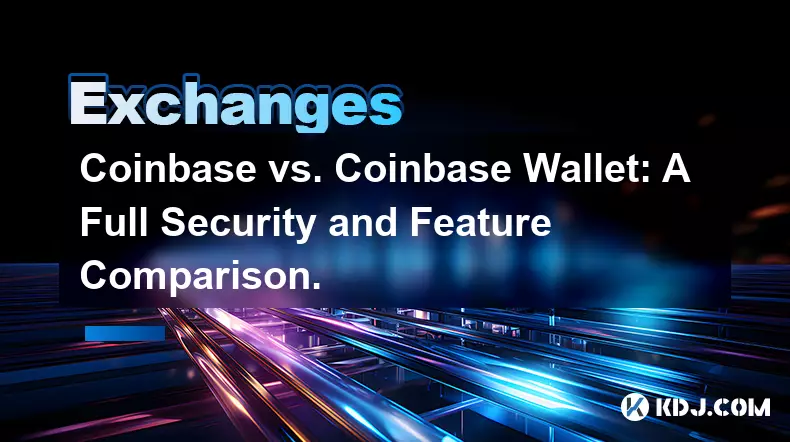
Coinbase vs. Coinbase Wallet: Understanding the Core Differences
1. Coinbase is a centralized cryptocurrency exchange that allows users to buy, sell, and store digital assets through a managed platform. The service handles private keys on behalf of its customers, making it accessible for beginners who prioritize ease of use over full control.
2. Coinbase Wallet, in contrast, is a non-custodial wallet application that gives users complete ownership of their private keys and blockchain assets. It functions as a self-hosted solution, enabling direct interaction with decentralized applications (dApps) across various blockchains like Ethereum and Polygon.
3. While both products are developed by the same company, they serve fundamentally different purposes. Coinbase operates as a financial gateway into the crypto space, whereas Coinbase Wallet empowers users with autonomy over their digital identity and holdings.
4. Access to Coinbase requires an account registration process involving identity verification, aligning with regulatory standards. Coinbase Wallet, however, can be set up without providing personal information, relying solely on a secure recovery phrase for access.
5. Transfers between the two platforms are possible but require manual movement of funds. Assets held on the Coinbase exchange must be withdrawn to a Coinbase Wallet address to gain full control and enable usage in DeFi protocols or NFT marketplaces.
Security Models and User Control
1. On Coinbase, security relies heavily on the platform’s infrastructure, including two-factor authentication, biometric login options, and insurance coverage for stored assets. This custodial model reduces individual responsibility but increases dependency on corporate safeguards.
2. With Coinbase Wallet, security shifts entirely to the user. The app never stores the recovery phrase, meaning loss or exposure of this 12-word sequence results in irreversible loss of funds. No customer support can restore access if the phrase is misplaced.
3. Phishing attacks and malicious dApp interactions pose significant risks when using Coinbase Wallet. Since transactions are irreversible and validated directly on-chain, fraudulent smart contracts can drain funds even if the wallet interface appears legitimate.
4. Coinbase implements withdrawal delays and account locks during suspicious activity, offering a safety net absent in the wallet version. These protections do not exist in non-custodial environments where every transaction is final upon confirmation.
5. Both platforms offer protection against unauthorized access through device-level encryption and PIN requirements, but only the exchange provides institutional-grade breach response mechanisms due to its regulated status.
Features and Ecosystem Integration
1. Coinbase supports fiat on-ramps, recurring buys, tax reporting tools, and staking services within a unified interface. These features cater to traditional investors seeking structured entry points into crypto markets.
2. Coinbase Wallet integrates a built-in browser for exploring Web3 ecosystems, allowing seamless connection to NFT platforms, decentralized exchanges, and blockchain games. This functionality is unavailable within the main Coinbase app.
3. The wallet supports multiple blockchain networks beyond those listed on the exchange, enabling asset management across emerging Layer 1 and Layer 2 solutions. Users can customize RPC settings and track tokens from any compatible chain.
4. Token approvals and contract interactions are visible within the wallet’s transaction history, giving transparency into permissions granted to third-party services. Revoking unnecessary allowances helps mitigate potential exploitation.
5. Domain integration through Ethereum Name Service (ENS) allows users to replace complex wallet addresses with human-readable names, enhancing usability when sending or receiving payments via Coinbase Wallet.
Frequently Asked Questions
Can I use my Coinbase account credentials to log into Coinbase Wallet? No, Coinbase Wallet uses a recovery phrase generated at setup and does not rely on exchange login details. Attempting to import an account with email and password will not work, as the wallet operates independently of the exchange’s authentication system.
Is my cryptocurrency insured in Coinbase Wallet? Unlike assets stored on the Coinbase exchange, funds in Coinbase Wallet are not covered by insurance policies. Because the user holds the private keys, there is no central entity responsible for compensating losses due to theft or mismanagement.
Do I need Coinbase to use Coinbase Wallet? Not necessarily. While you can transfer funds from Coinbase to Coinbase Wallet, the wallet functions as a standalone product. You can receive crypto, interact with dApps, and manage keys without ever linking to a Coinbase exchange account.
What happens if someone gains access to my Coinbase Wallet recovery phrase? Full control of your wallet and all associated assets transfers to that person. They can move funds, approve contracts, and drain balances without needing additional verification. Protecting the physical and digital copies of your recovery phrase is critical to maintaining security.
Disclaimer:info@kdj.com
The information provided is not trading advice. kdj.com does not assume any responsibility for any investments made based on the information provided in this article. Cryptocurrencies are highly volatile and it is highly recommended that you invest with caution after thorough research!
If you believe that the content used on this website infringes your copyright, please contact us immediately (info@kdj.com) and we will delete it promptly.
- PumpFun, Solana, Price Prediction: Riding the Solana Wave
- 2025-11-06 07:20:01
- Bitcoin Treasury Takes Root in Europe: Institutional Platforms Emerge
- 2025-11-06 07:45:01
- Lido & Chainlink CCIP: wstETH Transfers Get a Major Upgrade
- 2025-11-06 07:30:01
- Zcash (ZEC) Price Breakout: Privacy's Comeback Kid?
- 2025-11-06 07:50:01
- MSTR Sinks as Bitcoin Declines: A 25% Drop Deep Dive
- 2025-11-06 07:50:01
- Trump, Crypto, and Solana: Decoding the Intersections in the Concrete Jungle
- 2025-11-06 07:00:01
Related knowledge
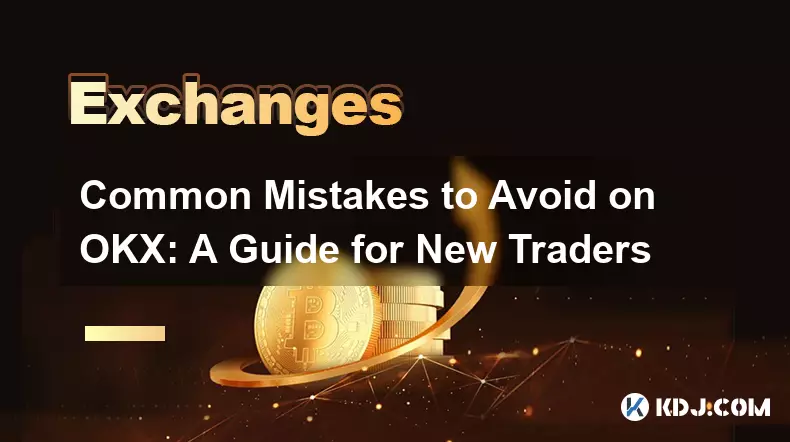
Common Mistakes to Avoid on OKX: A Guide for New Traders
Nov 04,2025 at 03:37pm
Understanding the Interface Before Trading1. New traders often jump into placing orders without fully exploring the OKX platform layout. Taking time t...

OKX TradingView Integration: A Guide to Advanced Chart Analysis
Nov 02,2025 at 03:37am
OKX and TradingView: Bridging the Gap for Professional Traders1. OKX, one of the leading cryptocurrency exchanges, has integrated with TradingView to ...

Finding Your OKX Deposit Address: A Quick and Safe Guide
Nov 05,2025 at 01:15pm
Finding Your OKX Deposit Address: A Step-by-Step Process1. Log into your OKX account using your registered credentials. Ensure you are accessing the o...
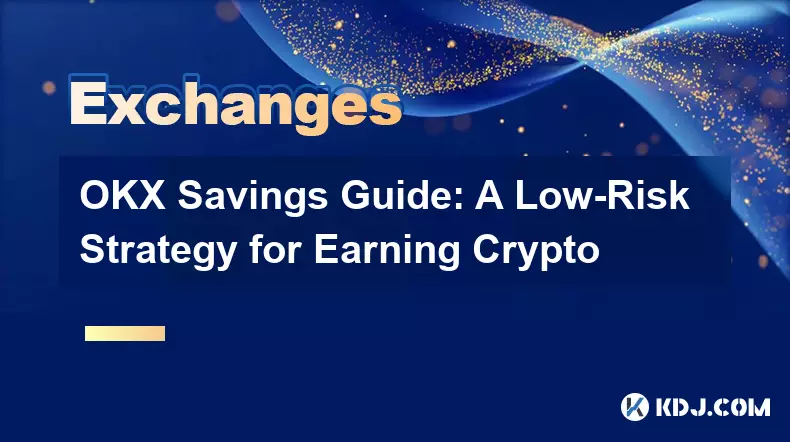
OKX Savings Guide: A Low-Risk Strategy for Earning Crypto
Nov 05,2025 at 06:55am
Understanding OKX Savings and Its Role in Crypto Earnings1. OKX Savings offers users a straightforward method to earn passive income by leveraging idl...
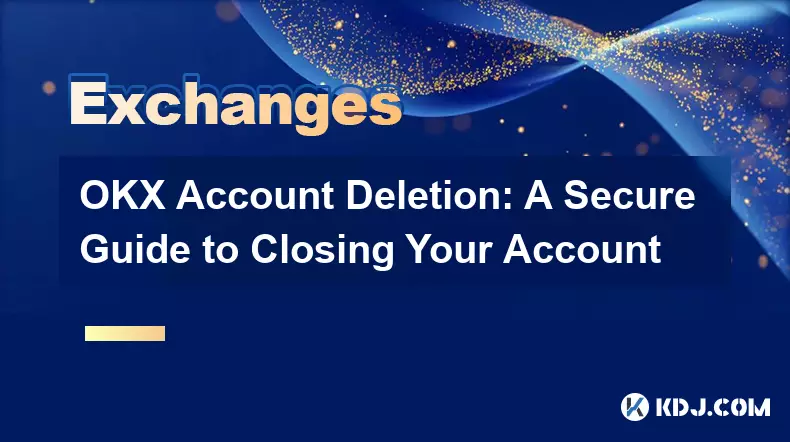
OKX Account Deletion: A Secure Guide to Closing Your Account
Nov 05,2025 at 08:44am
Understanding the Implications of Account Closure1. Closing your OKX account permanently removes access to all associated trading features, including ...
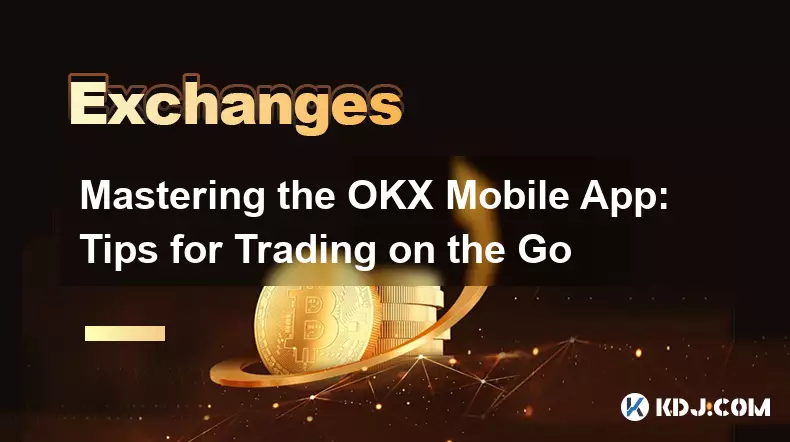
Mastering the OKX Mobile App: Tips for Trading on the Go
Nov 05,2025 at 01:19am
Streamlined Navigation for Efficient Trading1. The OKX mobile app features a clean and intuitive interface that allows traders to access key functions...

Common Mistakes to Avoid on OKX: A Guide for New Traders
Nov 04,2025 at 03:37pm
Understanding the Interface Before Trading1. New traders often jump into placing orders without fully exploring the OKX platform layout. Taking time t...

OKX TradingView Integration: A Guide to Advanced Chart Analysis
Nov 02,2025 at 03:37am
OKX and TradingView: Bridging the Gap for Professional Traders1. OKX, one of the leading cryptocurrency exchanges, has integrated with TradingView to ...

Finding Your OKX Deposit Address: A Quick and Safe Guide
Nov 05,2025 at 01:15pm
Finding Your OKX Deposit Address: A Step-by-Step Process1. Log into your OKX account using your registered credentials. Ensure you are accessing the o...

OKX Savings Guide: A Low-Risk Strategy for Earning Crypto
Nov 05,2025 at 06:55am
Understanding OKX Savings and Its Role in Crypto Earnings1. OKX Savings offers users a straightforward method to earn passive income by leveraging idl...

OKX Account Deletion: A Secure Guide to Closing Your Account
Nov 05,2025 at 08:44am
Understanding the Implications of Account Closure1. Closing your OKX account permanently removes access to all associated trading features, including ...

Mastering the OKX Mobile App: Tips for Trading on the Go
Nov 05,2025 at 01:19am
Streamlined Navigation for Efficient Trading1. The OKX mobile app features a clean and intuitive interface that allows traders to access key functions...
See all articles










































































